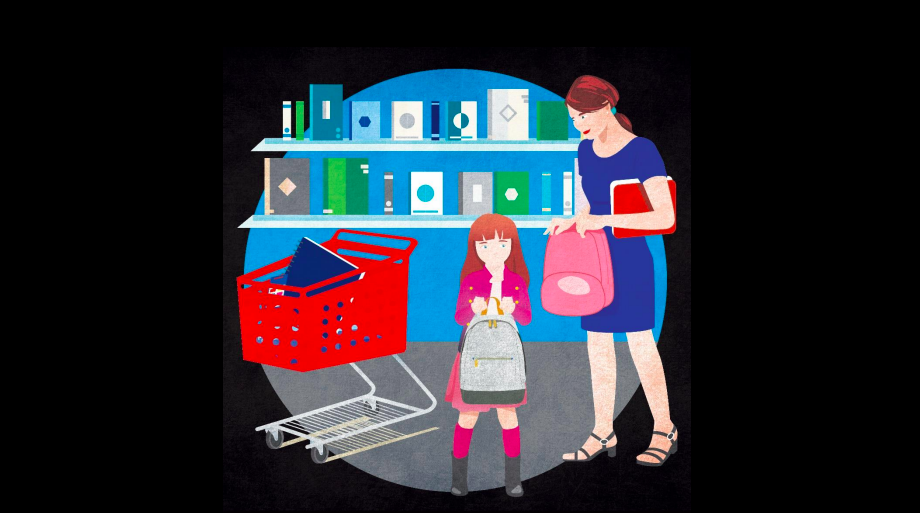Studies arrived last week on BTS selling arriving early, stores still dominating BTS selling, Amazon Prime Day launching BTS season, U.S. retail CEOs who are bullish on growth, Nordstrom’s high emotional intelligence ranking, Amazon’s broadening influence and loyalty-program inhibitors.
BTS Shopping Season Starts Early
According to the annual back-to-school survey by the National Retail Federation, most back-to-school shoppers (77 percent) plan to start at least three weeks before school begins, up from last year’s 74 percent and 64 percent a decade ago. Moreover, 67 percent of college shoppers will start as early, the same as last year but up from 51 percent in 2008. However, there is still plenty of shopping left to do. Nearly nine out of 10 (89 percent) back-to-school and college shoppers still have half or more of their purchases left to complete. Of these, more than half are still waiting for the best deals for the items on their lists.
Back-To-School and College Spending to Reach $82.8 Billion
BTS Shoppers Still Heading to Stores
According to Deloitte’s annual “Back-to-School” survey, parents surveyed say they’ll spend an average of $510 between July and September, with most of that occurring in stores ($292)–more than double the amount they plan to spend online ($115), which accounts for nearly one quarter (23 percent) of their spending. Respondents remain undecided where they’ll put the remaining 20 percent of their budget–leaving $5.5 billion up for grabs between online and store retailers. Additionally, the amount parents say their children influence accounts for $21 billion, or 75 percent, of back-to-school dollars.
Amazon Prime Day seen Driving BTS Selling
According to internal data from RetailMeNot Inc., Amazon Prime Day in 2017 was RetailMeNot.com’s biggest online shopping day of Q3 across a variety of retailers and categories. That was up significantly from its 21st position in Q3 of 2016. Continuing its meteoric rise, the day in 2018 is poised to become one of the top e-commerce shopping days of the year, potentially rivaling Black Friday and Cyber Monday in popularity, and not just for Amazon.
Amazon Prime Day: An Opportunity for All Retailers
U.S. Retail CEOs Bullish About Growth Prospects
The overwhelming majority of U.S. chief executive officers (83 percent) in the consumer and retail (C&R) industry say they are very confident about the growth prospects of their companies over the next three years–far more optimistic than their global counterparts (54 percent). U.S. executives also say they expect mergers and acquisitions (M&A) and third-party strategic alliances to drive growth, on-board new digital technologies and innovations and to improve the customer experience, according to the KPMG CEO Outlook 2018 survey.
Nordstrom Most Emotionally Intelligent Multi-Brand Retailer
According to Luxury Institute’s 2018 Emotionally Intelligent Brand Index, Nordstrom is the most emotionally intelligent multi-brand retailer in America. Nordstrom earns an overall score of 7.65 out of a maximum possible score of 10. The Seattle-based brand clearly stands apart from other multi-brand retailers, primarily by delivering superior customer service and good quality products. Nordstrom also outperforms across all key indicators of emotional intelligence: empathy, trustworthiness and generosity. The brand scores particularly well among women, while men draw a smaller distinction between Nordstrom and other leading multi-brand retailers.
Amazon’s Influence Broadens
Amazon’s influence on consumer shopping behaviors continues to accelerate. Data from a new Future Shopper study released today by Salmon, a Wunderman Commerce company, shows Amazon leads as consumers’ preferred starting point for shopping (51 percent), and also dominates where consumers complete the majority of their online purchases (55 percent). This year’s research shows Amazon capturing a significant share of online spending, 35 percent in the U.K. and 52 percent in the U.S. While 72 percent of consumers are more likely to shop with retailers that are digitally innovative–up from 60 percent in 2017, many retailers are still failing to meet these expectations. 72 percent of consumers state that retailers should be more innovative in their use of digital technology to improve their overall shopping experience. Additionally, consumers named ‘price’ (64 percent) and ‘free delivery’ (54 percent) as key criteria influencing purchasing decisions.
Wunderman Commerce Study Reveals Amazon’s Shopping Search Supremacy
Complications Discourage Consumers from Joining Loyalty Programs
Half of consumers are deterred from joining loyalty programs, according to a newly released study from Kobie Marketing. When asked what barriers prevent them from joining a program, 26 percent of consumers reported that brands ask for too much information or the enrollment process takes too long, and 22 percent reported they won’t join if it takes too long to earn and redeem points. The “Loyalty in the Age of the Connected Consumer” report reveals that consumers value convenience and flexibility in loyalty programs, and the opportunity to earn and redeem points drives their decision to join. In fact, 86 percent of consumers reported that they primarily join programs to collect and redeem points for rewards, and 36 percent said they join programs specifically to redeem points for discounts and prizes. With one in four shoppers refusing to join a program that requires too many purchases to earn and redeem points, there is an opportunity for brands to make programs more appealing for consumers by offering smaller rewards earlier and more frequently after sign-up.
STUDY: Lack of Convenience and Simplicity Deters Half of Consumers from Joining Loyalty Programs
Photo courtesy Deloitte
















